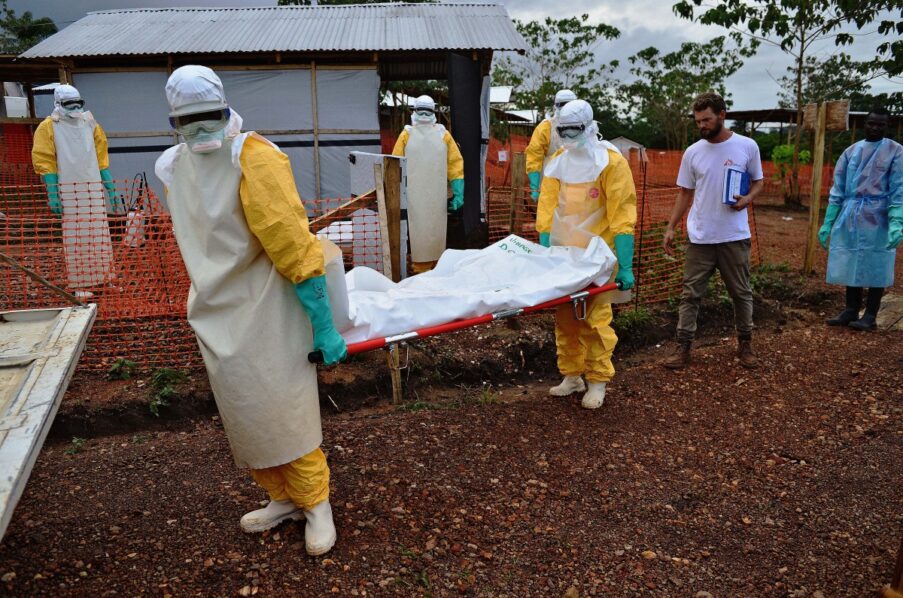
The highly contagious Ebola virus has claimed more than 15,000 lives since it was first identified in central Africa in 1976.
More than three quarters of those deaths occurred during a brutal outbreak in West Africa which began a decade ago.
Ebola is a viral haemorrhagic fever that was first discovered in the Democratic Republic of Congo (DR Congo).
Six of the virus species are known to cause disease in humans — Zaire, Sudan, Bundibugyo, Reston, Tai Forest and Bombali.
The first three have resulted in serious outbreaks in Africa, but Zaire has caused the vast majority of cases over the last decade. (Photo by Carl DE SOUZA / AFP)
A young child has died of the Ebola virus in Uganda, the second victim of an outbreak that was announced in late January, the health ministry said on Saturday.
On Tuesday, the east African country confirmed it had recorded 10 cases of the Sudan Ebola strain of the often deadly virus — including that of a nurse at Mulago National Referral Hospital, who had died.
On Saturday, it announced an “additional positive case” had been detected at Mulago.
The deceased, a child of four and a half, was “a resident of Kibuli (in the capital, Kampala) linked to the primary cluster”, it said.
The authorities said on February 19 they believed the outbreak, which was first announced on January 30, had been “contained” after eight of the people known to be infected had received treatment and recovered.
A total of 265 other people were placed “under quarantine for monitoring” at hospitals in Kampala and the eastern city of Mbale after coming into contact with the nurse who died in late January.
This is the sixth outbreak in Uganda of Sudan Ebola, a strain of the virus for which there is no approved vaccine.
A vaccination trial for the strain was launched in the country earlier this month. It was praised by the World Health Organization as the “fastest roll-out” of an Ebola vaccine trial in the midst of an epidemic.
Ebola is transmitted between people through body fluids. People who are infected do not become contagious until the appearance of symptoms — mainly fever, vomiting, bleeding and diarrhoea — which occurs after an incubation period of between two and 21 days.
Uganda’s previous Ebola outbreak lasted for four months in 2022 and 2023, claiming 55 lives.
The deadliest epidemic of the haemorrhagic fever occurred in west Africa between 2013 and 2016 and killed more than 11,300 people, according to WHO estimates.
More than 15,000 people in Africa have died of Ebola — all six strains combined — in the past half-century.






